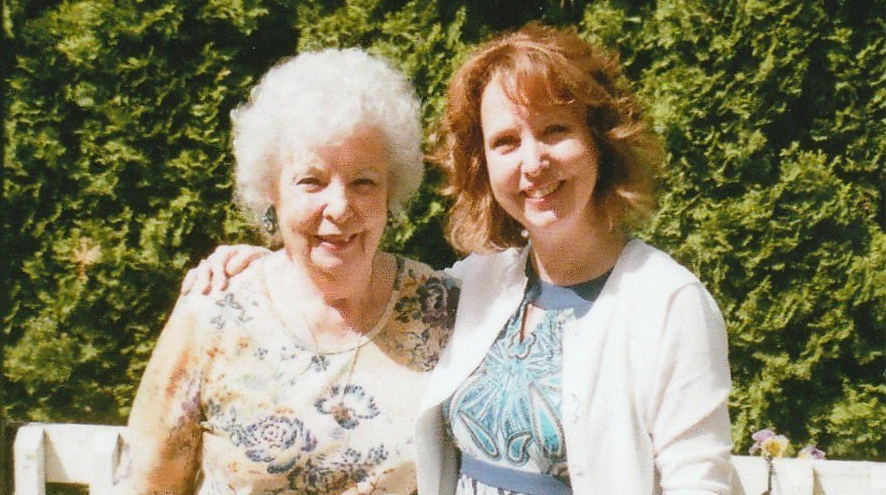No more what ifs

Jennifer Chandler was navigating her mother’s dementia journey, when she met a man whose wife recently passed away from the disease. In this story, Jennifer shares the gift the man gave to her through their conversations.
I spoke with a man who had just lost his wife from complications associated with dementia – she was only 74 years old. They had been married for 52 years, and though he admitted there was some relief after her long journey with dementia came to an end, his head lowered under the weight of his grief.
It wasn’t that the feeling of grief was new because he had been experiencing that for years, but it was the “what ifs” and the “if I had only dones” that began to eat away at him. He was questioning his decisions, especially the decision to transition her to a care home. It was clear that he had tried valiantly to care for her, but among other things, her actions posed safety concerns for herself. For example, he told stories about her becoming disoriented and his struggles to keep her safe during their outings together.
A very low moment came when the police were called because someone mistakenly thought he had kidnapped a woman – who was his wife – after he escorted her from a park they were visiting and then kept her from continuously opening the car door as he drove away. After explaining the situation to the police, he just sat down in his chair, exhausted as they checked facts and went to see his wife who was now sleeping in bed. His stories were both heartbreaking and moving.
What struck me as we kept sharing our experiences as caregivers was that we both have lost so much time in our lives as we retrace our decisions, thoughts and conversations with respect to the people we are caring for. Those should have, would have, could have thoughts are killing us, but later that day I thought, this man has unknowingly given me a gift. I was able to see that we focus so much on what we think we are doing wrong rather than what we are doing right.
There are hundreds of good decisions, incredible feats of management and special moments together that exist on any given day. The sheer scope of work required to learn about Alzheimer’s disease and dementia is immense. While navigating this slow goodbye to our loved ones, we are also faced with all the emotions that arise in a crisis only to wake up the next day and do it all over again. As our loved one slips away in essence so do we, but from that emerges a new person whose strength has been tested and developed.
From our talk together, I walked away thinking about the myriad of tasks and decisions that have worked well. I have challenged myself to reflect more on the circle of support and resources that I have sourced and have been shared since this journey began. When our loved ones finally move on, they have given us a chance to know more about how we define life and our humanity.
What we have accomplished as caregivers has been so important because it was all underpinned by the desire to love and care for someone right to the bitter end. Any decision made with that at its core can’t be seen as right or wrong as it is wrapped in only the best of intentions. We each served, sacrificed and experienced loss all for one more precious moment to give and receive love.
- Jennifer
